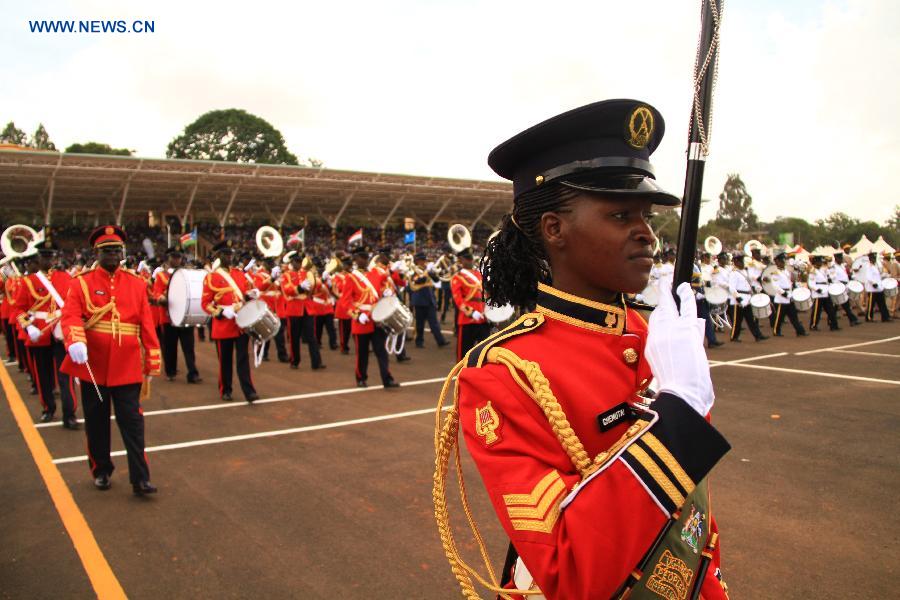
Traditional dancers perform during celebrations to mark Uganda’s 50th-anniversary independence celebrations at Kololo ceremonial grounds (PHOTO/File)
Uganda’s history is sometimes not well recorded. As such, sometimes issues are either mixed up or misrepresented.
For instance, often, the 1955 Buganda agreement issues are mixed up with the 1961 Buganda agreement.
The Uganda Independence Conference, or the Marlborough House Conference, is what largely scrutinised, discussed and concretised issues that had been debated a year before at Lancaster conference concerning both Uganda constitution and independence.

In other words, the Marlborough conference was designed to verify and implement what had been drafted at the Lancaster conference in 1961.
The Uganda Independence Conference was opened on Tuesday, June 12, 1962 at Marlborough House in London and concluded on Friday, June 29, 1962 under the chairmanship of the secretary of State for colonies Reginald Maulding.
When the Uganda Independence Conference happened, Uganda People’s Congress (UPC) was in government and Milton Obote was the prime minister while Democratic Party (DP) was in the opposition led by Basil Bataringaya, who was Member of Parliament for Ankole north-west.

The work of the Uganda Independence Conference was largely undertaken in three committees. There was a constitutional committee, a fiscal committee and a citizen committee. This is contained in the document titled: “Report of the Uganda Independence Conference, 1962” published in July 1962. The Marlborough House Conference thus on a large extent focused on independence issues that were not discussed during the Lancaster Conference a year earlier.
After the April 24, 1962 general elections which the Uganda People’s Congress (UPC) won and its leader Milton Obote on May 1, 1962, formed a coalition government with Kabaka Yekka.
There remain other unsettled issues which could not be resolved in the earlier conference at Lancaster. And besides, the Lancaster conference of September-October, 1961 was held during the reign of the DP when Benedicto Kiwanuka was the prime minister. Technically, some issues had to be renegotiated such as the Independence Day and Constitution as well as Uganda’s membership to the Commonwealth.
Under the Independence and Commonwealth membership chapter, the report of the Uganda Independence Conference wrote that: “The conference confirmed the provisional agreement reached at the Uganda Constitutional Conference, 1961 that Uganda should attain Independence on October, 1962.”
About Uganda’s membership to the Commonwealth, it said: “All Uganda representatives joined in expressing the wish that on attaining independence, Uganda should be accepted as a member country of the Commonwealth. They were also united in desiring that after Independence, Uganda should be under the sovereignty of Her Majesty the Queen. The United Kingdom delegation readily undertook to support with the other members of the Commonwealth Uganda’s application for acceptance as a fellow-member.





